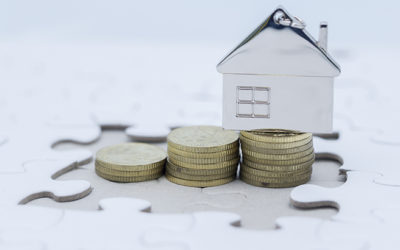
When you’re thinking about buying a home, your credit score is one of the biggest pieces of the puzzle. Think of it like your financial report card that lenders look at when trying to figure out if you qualify, and which home loan will work best for you. As the Mortgage Report says:
“Good credit scores communicate to lenders that you have a track record for properly managing your debts. For this reason, the higher your score, the better your chances of qualifying for a mortgage.”
The trouble is most buyers overestimate the minimum credit score they need to buy a home. According to a report from Fannie Mae, only 32% of consumers have a good idea of what lenders require. That means nearly 2 out of every 3 people don’t.
So, here’s a general ballpark to give you a rough idea. Experian says:
“The minimum credit score needed to buy a house can range from 500 to 700, but will ultimately depend on the type of mortgage loan you’re applying for and your lender. Most lenders require a minimum credit score of 620 to buy a house with a conventional mortgage.”
Basically, it varies. So, even if your credit isn’t perfect, there are still options out there. FICO explains:
“While many lenders use credit scores like FICO Scores to help them make lending decisions, each lender has its own strategy, including the level of risk it finds acceptable. There is no single “cutoff score” used by all lenders, and there are many additional factors that lenders may use . . .”
And if your credit score needs a little TLC, don’t worry—Experian says there are some easy steps you can take to give it a boost, including:
1. Pay Your Bills on Time
Lenders want to see that you can reliably pay your bills on time. This includes everything from credit cards to utilities and cell phone bills. Consistent, on-time payments show you’re a responsible borrower.
2. Pay Off Outstanding Debt
Paying down what you owe can help lower your overall debt and make you less of a risk to lenders. Plus, it improves your credit utilization ratio (how much credit you’re using compared to your total limit). A lower ratio means you’re more reliable to lenders.
3. Don’t Apply for Too Much Credit
While it might be tempting to open more credit cards to build your score, it’s best to hold off. Too many new credit applications can lead to hard inquiries on your report, which can temporarily lower your score.
Bottom Line
Your credit score is crucial when buying a home. Even if your score isn’t perfect, there are still pathways to homeownership.
Working with a trusted lender is the best way to get more information on how your credit score could factor into your home loan.
To view original article, visit Keeping Current Matters.
How Technology Is Enabling the Real Estate Process
Here’s a look at some of the elements of the process that are changing due to stay-at-home orders and social distancing.
How to Find the Perfect Real Estate Agent
Hiring an agent who has a finger on the pulse of the current market will make your buying or selling experience so much easier. #brookhamptonrealty
Will Surging Unemployment Crush Home Sales?
Because the health crisis brought the economy to a halt, many are feeling a personal financial crisis. Will this impact home sales?
Looking to the Future: What the Experts Are Saying
Here’s a look at what experts and current research indicate about the economic impact we’ll likely see as a result of the coronavirus.
The #1 Thing You Can Do to Position Yourself to Buy a Home This Year
Pre-approval is the best thing you can do right now to be in a stronger position to buy a home. Let’s connect today to get the process started.
The Economic Impact of Buying a Home
While we all wait patiently for the current pandemic to pass, there are a lot of things you can do in the meantime to keep your home search on track.







.jpg )



